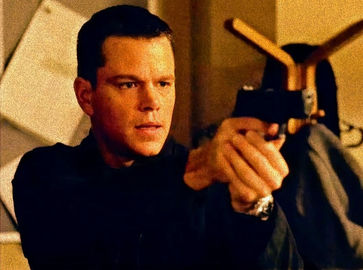- Jul 20, 2022
- 4 min read
Updated: Sep 24, 2022
The Godfather (1972) written and directed by Francis Ford Coppola, from the novel by Mario Puzo

It's hard to think of much to say about a movie as highly regarded as The Godfather. Widely considered to be the most influential piece of modern art created, for many, it is eternal, sitting at the top of the mountain when it comes to Television and Cinema.
Personally, The Godfather has always held a special place in my heart. Being half-Italian, from an early age people around me were constantly talking about and referencing The Godfather as the ultimate movie. At around 9 (which looking back, was an absurdly young age to watch this film), my Dad sat me down and announced that tonight we were watching The Godfather. And whilst at 9 years old, the film didn't resonate with me the same way as it does today, I can still remember being totally amazed by what I was watching. As I mentioned, the movie has only grown in prominence for me as I've gotten older, and here are the reasons why...
The first 20 minutes of the movie tell us all we need to know about Vito Corleone and the rest of the Corleone family. We open the film with an extreme close-up of a man's face, as he monologues, the camera slowly pans out revealing our titular character, Vito Corleone, who is sat quietly listening with his back to the camera. The shot holds whilst continuing to pan out slowly for just under 3 minutes until we finally cut to Vito, showing the audience that he is a man of significance. Marlon Brando's performance in the remainder of the scene is flawless and sets the tone for his character perfectly. His unique mannerisms, voice, and line delivery all set him apart from other protagonists you see in the film, and make him distinct. On top of that, the writing in this scene is essentially flawless; I find myself quoting it almost daily. The cinematography, sound design, and editing of the entire wedding sequence are also expertly done. Director Francis Ford Coppola's choice to refrain from using any close-ups, and instead use wide shots, means that as a viewer, it's as though you are watching a real family. This instantly immerses you into the plot and setting of the movie.
One of the biggest accomplishments of The Godfather trilogy is the character of Michael Corleone, and in particular, his development throughout the three movies. In this first movie specifically, the foundation for his change is thoroughly planted through meticulous writing and nuanced performance from Al Pacino. He is introduced to the audience as a bright, optimistic young man with all-American dreams. In his first scene, he is placed at a distance from his family and he is the only one of Vito's children with no involvement in the Corleone crime family. He even verbalises this distance to his girlfriend at the time, stating "that's my family Kay that's not me." But by the end of the movie, he is cold-blooded, ruthless, and smart as the leader of the Corleone crime family. Michael's change in character seems to be catalysed by an attempt at his father's life, which gives him an initial push into the crime side of his family. It's not until the movie's end that he fully transitions from civilian to mobster, but when Michael visits his father at the hospital, the seeds for his change are undeniably planted. When he arrives at the hospital, Michael finds that his father’s room is unguarded, leaving the Don vulnerable to a second assassination attempt. In an attempt to ward off any threat to his father, Michael coerces Enzo, the baker (who had come to visit his father with flowers), into standing outside the hospital with him appearing as a guard. As hoped, this deters the passing car of the assassins. Michaels's initial quick thinking displays his adeptness in critical situations, however, it is the next 15 seconds that truly give an indication of his upcoming future as the ruthless leader of the Corleone crime family. After the assassins have left, Enzo tries in vain to light a cigarette. He is so terrified, that his hands are violently shaking. Michael on the other hand is unfazed by what just happened, and reaches over, takes the lighter, and lights Enzo's cigarette. Where Enzo's hands are shaking, Michael's hands are stable. Somehow, in this extremely dangerous situation, he has stayed completely calm. Al Pacino's performance of course adds a ton of value to this scene, the look on his face conveys to the audience that he realises his own lack of fear. But for me, it's the editor, who through choosing to linger on both the cigarette case and then Michael's face, transforms this otherwise insignificant moment, into something of extreme meaning.
It almost feels cliche to call The Godfather the greatest movie of all time, and for a long time, I held off on calling it such. However, after watching it again (for probably the 50th time) a few weeks ago, I finally accepted that this is the case. Not only is it highly entertaining for its entire 2 hour 55 minute run time, but it features incredible performances, a highly emotive, influential plot, expert writing, precise editing, stunning set design and cinematography, and tying it all together, clinical film making from director and genius Francis Ford Coppola. The Godfather indeed is the best of the best. A true modern masterpiece, which will never be forgotten.













